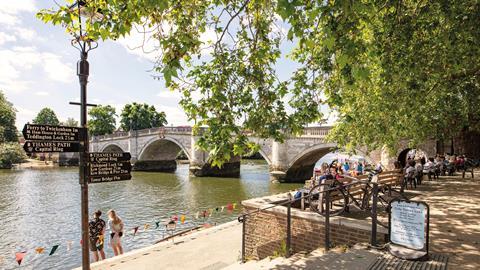Civil contempt arises (among other things) when a party to proceedings breaches a judgment or order against it or fails to refrain from doing a particular act. Under Civil Procedure Rule 81.9: ‘If the court finds the defendant in contempt of court, the court may impose a period of imprisonment (an order of committal), a fine, confiscation of assets or other punishment permitted under the law.’

However, (per Halsbury’s Laws of England (Halsbury), volume 24 at paragraph 72): ‘The power to order committal for civil contempt is a power to be exercised with great care. The court will only punish disobedience to an order of the court, or non-compliance with an undertaking, if satisfied that the terms of the order or undertaking are clear and unambiguous, that the defendant has proper notice of the terms and that a breach of the order or undertaking has been proved beyond reasonable doubt.’ On 19 August 2024, Kerr J considered this issue in giving judgment in London Borough of Richmond v Trotman [2024] EWHC 2145.
The defendant, Mr Trotman, used to operate riverboats on the River Thames. When his activities became unwelcome to the boroughs of Kingston and Richmond, which own and manage the riverbank, Richmond brought contempt proceedings alleging breaches of an injunction granted by Lambert J in July 2023 which included a power of arrest. Richmond contended that Trotman’s positioning of his boat from 18 July to 25 September 2023 and his attaching it to the riverbed on or near Richmond’s land breached the injunction.
Lambert J’s order was subsequently replaced in November 2023 with a different order founded on nuisance, not trespass in accordance with a reserved judgment given by His Honour Judge Blair KC who granted an injunction to stop the nuisance, expiring in July 2028. While, by then, Richmond had already issued the instant contempt application, before Kerr J Richmond ‘belatedly’ accepted that the council was bound by the relevant findings and decisions of HHJ Blair KC under the doctrine of issue estoppel (where a particular issue has already been litigated and decided). Richmond submitted that since Trotman was guilty of contempt to the criminal standard of proof in his breach of Lambert J’s order (which was no longer in force), and because he had no assets of substance, the appropriate penalty was a term of imprisonment suspended for two years on condition that he does not breach HHJ Blair KC’s order.
Kerr J noted the above passage from Halsbury, and also highlighted Halsbury volume 24 at paragraph 110 which indicates that the court ‘will not order committal where the contempt is of a minor or technical nature’. He found it unlikely that Lambert J ‘can have intended to prohibit acts that (i) as against Richmond, did not amount to trespass; (ii) amounted, or may have amounted only to nuisance, a cause of action she did not consider; and (iii) amounted to some form of “mooring” outside the byelaw definition of that term.’ Regarding two of the allegations against Trotman, on 18 July he was unable to start the tug engine needed to remove his boat, so had with difficulty to haul it some 60 yards downstream. It was, noted Kerr J, ‘at the most a shortlived trespass comparable to what HHJ Blair KC later called (writing about a different occasion) “something of a contrivance… to try to found a tenuous basis for a cause of action in trespass”’. And, although contrary to the order of Lambert J, ‘It would not have persuaded HHJ Blair KC to grant a final injunction’. So, indicated Kerr J, ‘the only breach proved is minor’ and ‘insufficient to found an order of committal’. He was therefore ‘unwilling to make one based on it’.
Nevertheless, the court also expressed ‘a number of serious concerns about the way in which these contempt proceedings have been pursued’. For: ‘A statesmanlike and wise decision would have been to abandon them after HHJ Blair KC’s judgment and order. He made binding findings greatly reducing the sting of any contempt. His order replaced Lambert J’s with one that is a model of clarity. He excoriated the drafting of Lambert J’s order, with good reason. He cast serious doubt on the power of arrest.’ Kerr J therefore considered that ‘continuation of the contempt proceedings after these setbacks was ill-judged’.
In summary, said Kerr J, ‘Richmond’s pursuit of Mr Trotman in these contempt proceedings has been zealous to a fault, to the point of being heavy handed, even extending to the loud and harsh tone in which Mr Trotman was, at times, cross-examined, with discursive and aggressive questioning. Richmond’s misplaced zeal in its pursuit of him was in inverse proportion to the dwindling merits of its case against him in contempt. It has been neglectful of its duties to its unrepresented opponent and to the court to inform both of points that could assist the other side.’ On the other hand, Trotman was not without fault. For ‘it should not be forgotten that Mr Trotman has committed an ongoing and continuing public nuisance over months and probably years by blocking the river bank and impeding the lawful exercise of navigation and mooring rights of others’. And he ‘is a difficult character with an abrasive and sometimes (not always) discourteous manner’. In the circumstances, the application for a committal order was dismissed and the order of HHJ Blair KC will continue until it expires at midnight on 29 July 2028.
Nicholas Dobson writes on local government, public law and governance
































No comments yet